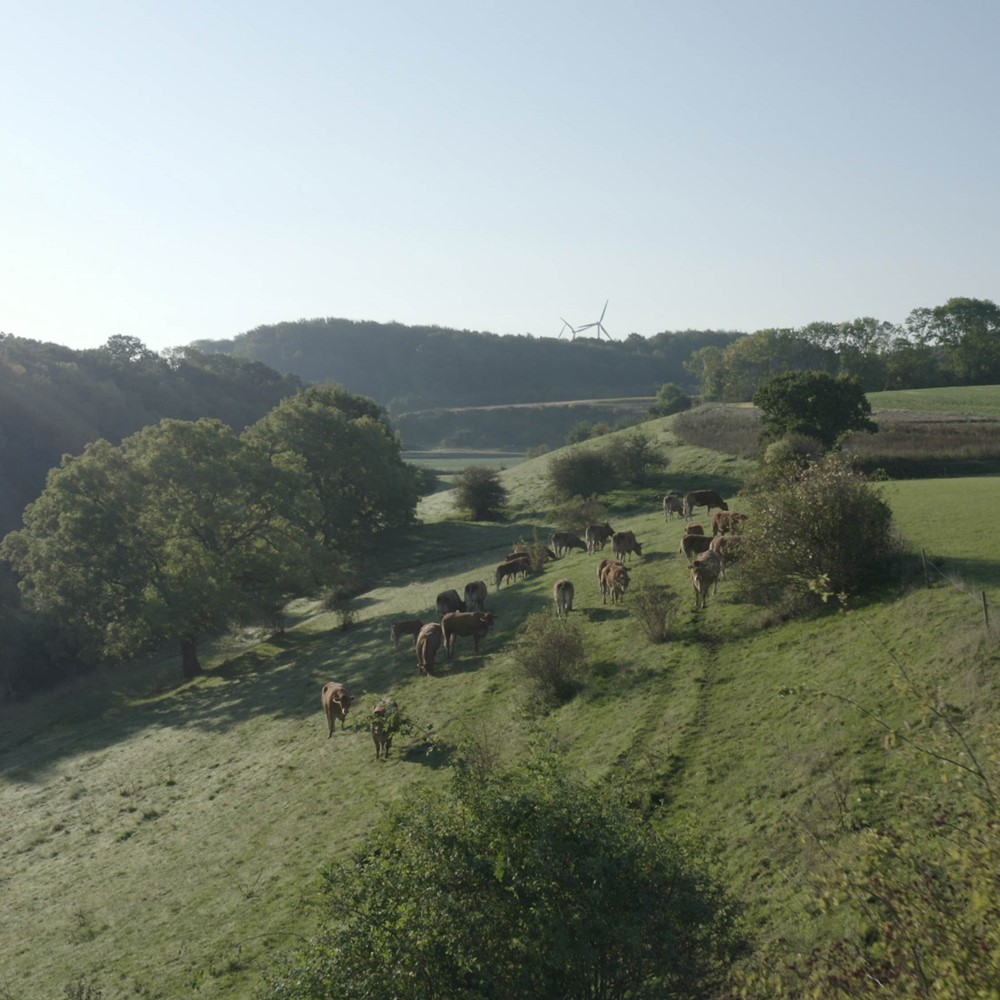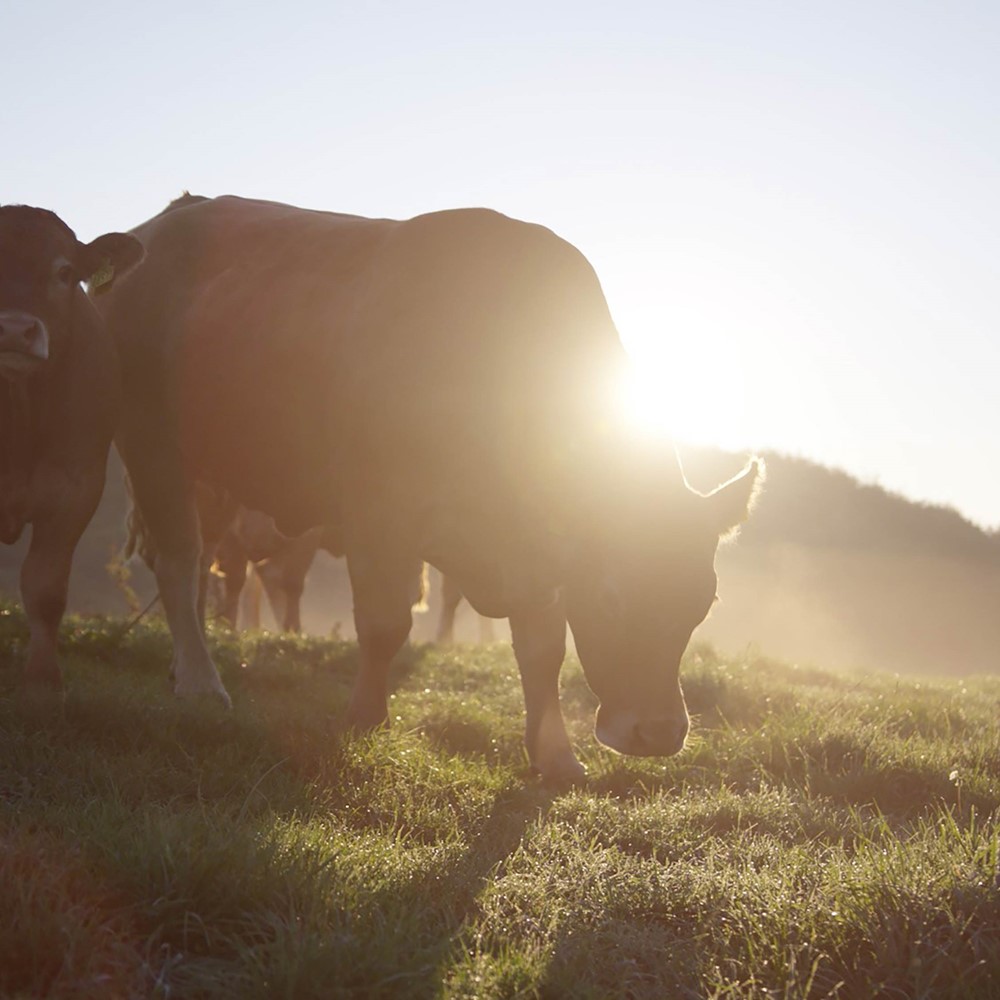From her desk at Bæredygtig Herning, Birgitte Holgaard Langer can look up at a cream coloured stilletto sitting like a trophy on a shelf in her corner of the office. The shoe, produced by Roccamore, was designed in Denmark, hand sewn in Italy and it originally grazed in a Jutland field not far from here. The stiletto represents the result of the years of work SPOOR has done with brands that want to be able to trace the skins used in their production all the way back to the very cow they came from. That is exactly what SPOOR does.
Birgitte is Business Development Director at SPOOR, which is owned by Scan-Hide in the Fyn region of Denmark. Scan-Hide specializes in premium skins for use in industries like furniture and fashion. Spoor was started in 2020 as part of strategy centred around sustainability, when it became apparent that traceable leather could create value for brands and consumers who demand transparency and documentation.



“One hundred percent traceability is not something that existed in leather. But just as FSC-certified wood has become a part of the lumber industry and can document where trees come from and that there is responsible forestry behind them, we believe that traceability is the future of leather,” Birgitte explains. “SPOOR works with purposeful brands that understand that sustainability depends to a great degree on being able to document a product’s journey from cow to finished leather furniture, silky-smooth stiletto or stylish handbag. Traceability offers this kind of documentation – to companies, but also to consumers- for instance through a QR Code. That is the case with that Roccamore stiletto.”
"SPOOR works with purposeful brands that understand that sustainability depends to a great degree on being able to document a product’s journey from cow to finished leather furniture, silky smooth stiletto or stylish handbag."
Birgitte Holgaard Langer | Business Development Director, SPOOR
Birgitte knew from the start that she wanted to be a part of a shared office space and Bæredygtig Herning has proven the right choice. “First of all, Herning makes good sense as a city and region because it is the centre of the Danish fashion and lifestyle industry. In addition, the setup here is perfect for our current size. And, third, there is a constant flow of people that come in and out and even though they all do different things they are all part of the sustainable transition. Because of this, you end up talking with people from the textile industry but also from other industries, which is a big advantage. I get a sneak peek into other kinds of work and that inspires our own efforts with business development and innovation,” Birgitte says. “An extra plus is the ongoing sparring and collegial atmosphere with Bæredygtig Herning’s team.”
Bæredygtig Herning works with VIA University College in Herning, which is Scandinavia’s largest educational institution for design and business within the furniture, fashion, and lifestyle industries. This connection led to an opportunity for Birgitte to establish a partnership with the school and become a case-study in its teaching on digitalization, blockchain technology and data-driven business development. “The future of our industry is being educated at VIA and the students there get to couple theory and real-world practice by looking at us as a case. I hope that will make it easier for them to implement sustainability in everything they do afterwards. It is rewarding to be able to take the next generation by the hand and show them sustainability’s many possibilities and facets.”
“Bæredygtig Herning is a meeting place for knowledge about sustainability and I am sure that more and more will discover the expertise the team here has and what this place and setting can offer.”
Company
SPOOR
Contact
Traceable leather for the furniture and fashion industries
